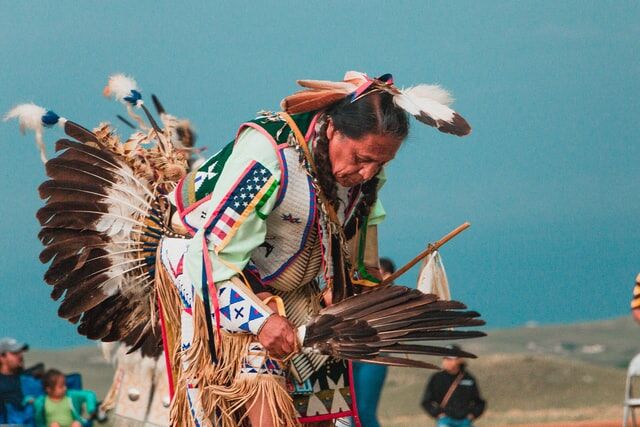The importance of Indigenous Peoples’ Day
Indigenous Peoples’ Day has slowly been replacing Columbus Day in order to bring awareness and attention to the negative affects Columbus brought to the Americans that affected Native American lives and futures.
October 11, 2020
The second Monday of October has been identified as Columbus Day since the year 1937; however, since 1977, many individuals have begun to call this day Indigenous Peoples’ Day to celebrate the lives and culture of Native Americans.
This shift from Columbus Day to Indigenous Peoples’ Day started due to the controversy of celebrating a historical figure who negatively impacted Native American and Indigenous people and their culture.
“It’s about celebrating people instead of thinking about somebody who actually caused genocide on a population or tried to cause the genocide of an entire population,” an article by NPR explained. “By bringing Indigenous Peoples’ Day, we’re bringing awareness that we’re not going to allow someone like that to be glorified into a hero because of the hurt that he caused to Indigenous people of America.”
However, there has also been backlash against changing the name because Christopher Columbus discovering the United States is a critical part of United States history.
In The Oprah Magazine, it’s explained that there is still a lot of push back in regards to what the day should be called, whether it be Columbus Day, Italian American Day or Indigenous Peoples’ Day. However, there is a common consensus that Columbus Day originated to celebrate history, but the concern is, what history is being celebrated?
“As the United States reckons with the racism and marginalization that are undeniable parts of its history, it’s important to speak about the harm faced by Native Americans at the hands of colonizers,” The Oprah Magazine said. “They were ravaged by diseases brought over from Europe, forced from their tribal land as the United States expanded and, even more recently, sterilized in large numbers.”
In NPR’s article it said that for Native Americans, Columbus Day has long been hurtful. It negatively affects and hurts those who are Indigenous and glorifies the violent history of 500 years of colonial oppression at the hands of European explorers and those who settled in the United States — history in which many Native and Indigenous folx say still has ramifications and wounds that run deep today.
Many states have taken initiative to celebrate the second Monday of October while also celebrating the culture and lives of Indigenous people by renaming the holiday. The movement to replace Columbus Day with Indigenous Peoples’ Day or Native American Day has gained momentum and spread to states, cities and towns across the United States, according to The Smithsonian Magazine.
The following states and the District of Columbia now observe Native American or Indigenous Peoples’ Day, in place of or in addition to Columbus Day:
-
Alabama
-
Alaska
-
District of Columbia
-
Hawaii
-
Idaho
-
Iowa
-
Louisiana
-
Maine
-
Michigan
-
Minnesota
-
New Mexico
-
North Carolina
-
Oklahoma
-
Oregon
-
South Dakota
-
Vermont
-
Wisconsin
-
Washington, D.C.
However, there are still cities, towns and counties within the other states and territories that have changed Columbus Day in their local communities to Indigenous Peoples’ Day.
“Today, we understand that while [Columbus] was an explorer and is credited with being one of the first Europeans to arrive in the Americas, we now know a great deal about the history and the way that he and his people behaved when they came to this continent, which included pillaging, raping and generally setting in motion a genocide of the people who were already here,” NPR said. “That’s not something we want to celebrate. That’s not something anyone wants to celebrate.”
Instead, Indigenous people and Native Americans encourage people to learn and educate themselves about the culture and history of different tribes, support the art and products made by Indigenous people and honor the land that people stand on by using land acknowledgements.
In The Oprah Magazine, there were suggestions of artists to check out, such as the genre-bending rapper Princess Nokia, Academy Award-winner Buffy Sainte-Marie and groups like Peace Poets and Nahko & Medicine for the People. Other people that were suggested to be checked out were best-selling writer Tommy Orange, whose novel “There There” won a National Book Critics Circle Award, and U.S. Poet Laureate Joy Harjo, the first Native American with that title.
Also, folx who aren’t Indigenous are suggested to just take the time to educate themselves over the issues Native folx go through.
“People should also do their own research about Native American life so that they can both be better allies and appreciate the vast history and promising future of the Indigenous population,” The Oprah Magazine said.

















